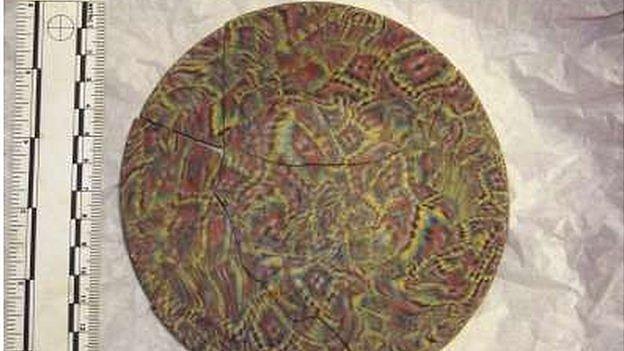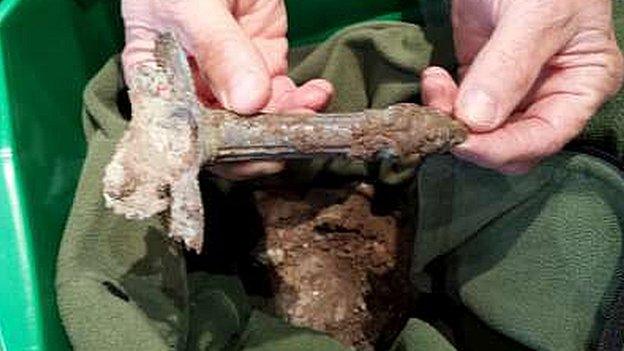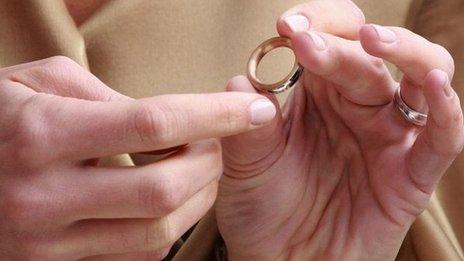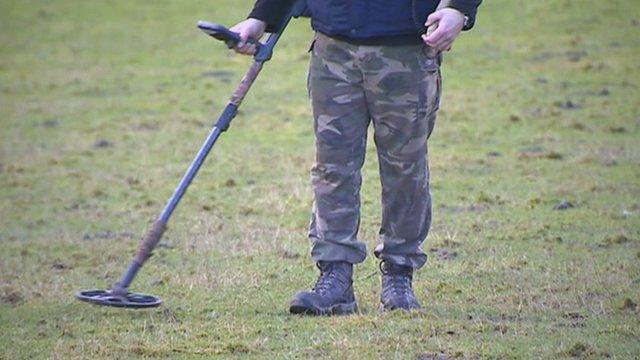Metal detectorist in Kelshall unearths 'exceptional' Roman finds
- Published

Two shattered but complete glass dishes were a "major find"
"Exceptional" Roman artefacts discovered in a field in Hertfordshire date back to AD174, an investigation has found.
A metal detectorist found three jugs and a bronze dish in a field in Kelshall near Royston last year, North Hertfordshire District Council said.
A subsequent dig unearthed artefacts from a "cosmopolitan" burial including mosaic glass dishes and cremated bone.
Experts are "clamouring" to study the "unique find," the council said.

A handle from a bronze jug was amongst the finds
The treasure hunter made the initial discoveries, including a complete Roman jug, late last year and council archaeology officer Keith Fitzpatrick-Matthews decided the finds merited further investigation.
'Major find'
Glass bottles and cups, an iron lamp, a box with bronze corner bindings were later uncovered, as well as a bronze coin dating from AD174 to 175.
A "major find" were two shattered - but otherwise complete - mosaic glass dishes, which were probably made in Alexandria in Egypt in about AD200, the council said.
Mr Fitzpatrick-Matthews said: "After 1800 years, finds like these still impress us with their workmanship."
The artefacts are not currently classed as treasure and are owned by the farmer and the finder but North Hertfordshire Museum Service wants to raise the money to buy them.
The value has not been revealed but is estimated to be "more than £20,000".
- Published31 October 2014

- Published5 February 2014
